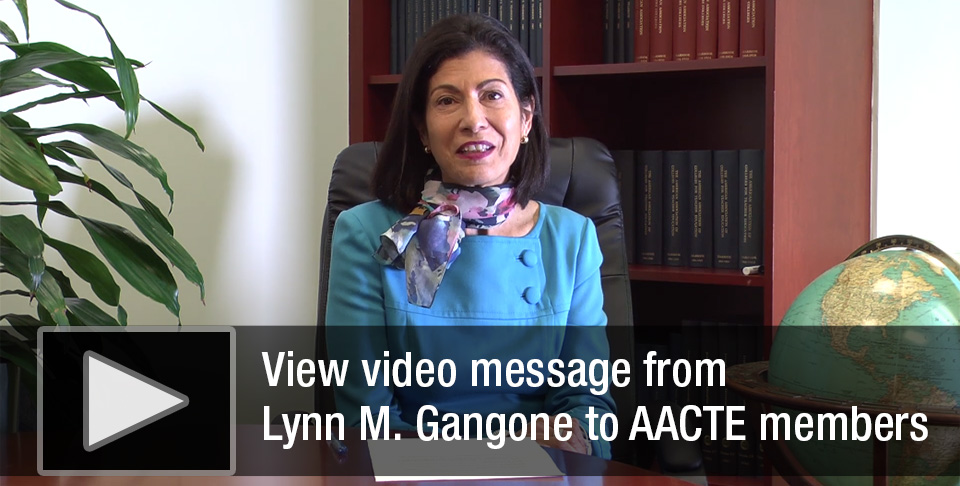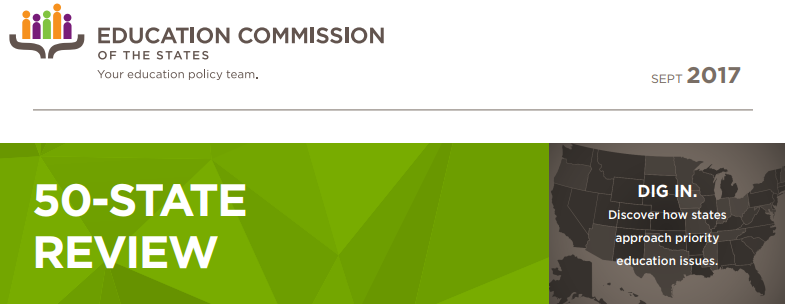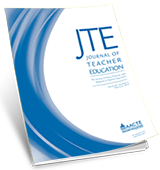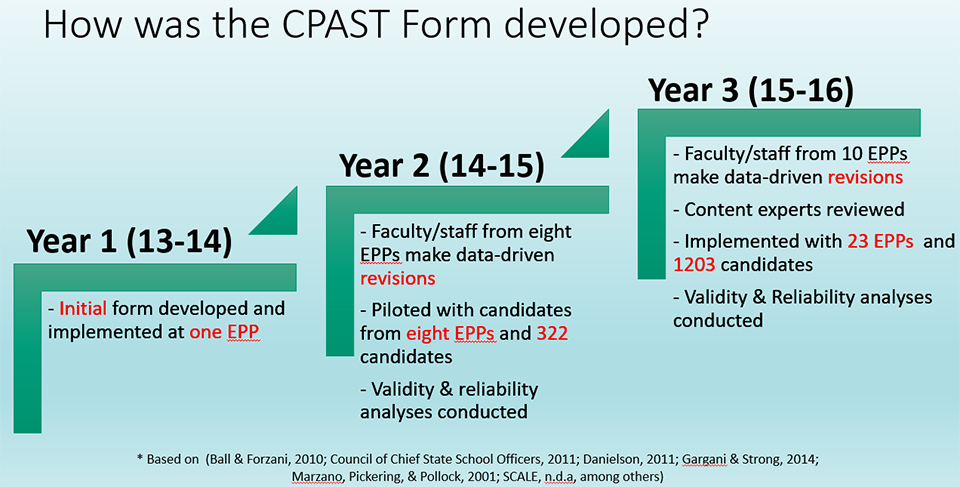30 Jan2018
By AACTE
FOR IMMEDIATE RELEASE
For interviews, contact Jerrica Thurman
(202) 478-4502 or jthurman@aacte.org
(January 30, 2018, Washington, D.C.) – Today, the American Association of Colleges for Teacher Education (AACTE) publicly released a statement by its Board of Directors regarding its recent vote on national accreditation:
AACTE champions high-quality preparation that assures educators are profession-ready as they enter the classroom. National accreditation serves a critical function in assuring this quality by requiring providers to address profession-wide standards of excellence. To uphold AACTE’s commitment to supporting high quality, the AACTE Board of Directors held an extensive discussion about national accreditation at a special meeting in Washington, DC, on January 18, 2018, devoted solely to this topic. After much deliberation on behalf of the membership, the AACTE Board approved by the overwhelming majority the following statement:
The Board of Directors of the American Association of Colleges for Teacher Education (AACTE) reaffirms the importance of a unified national professional accreditation system that aligns with AACTE’s Principles for National Accreditation in Educator Preparation.
30 Jan2018
By Lynn M. Gangone

AACTE is committed to high-quality educator preparation and works continually to assist member institutions in understanding what is necessary to engage in quality assurance processes. A recent decision by the AACTE Board of Directors, described in this blog by AACTE Board Chair Renée A. Middleton, reaffirms the importance of a unified national accreditation system that assures our nation’s teacher candidates are of the highest caliber, and clarifies AACTE’s role in the quality assurance environment. The Board and the AACTE national office team are dedicated to listening to and serving our members, and Dean Middleton’s blog reflects that commitment to member value.
One of the primary roles of educators is to prepare learners to become engaged citizens in a 21st-century democratic society. Today’s educators enter highly diverse schools that reflect the breadth of our nation, and AACTE members are committed to ensuring that their candidates are ready and able to be successful with all of their students. National accreditation requires educator preparation providers to address profession-wide standards of excellence and supplies metrics that support high quality by promoting programmatic reflection and continuous improvement. AACTE members embrace accountability measures that demonstrate their programs’ effectiveness and contribute to program improvement.
30 Jan2018
By Renée A. Middleton
As AACTE Board Chair, I am most appreciative of the diligent work the AACTE Board of Directors has conducted over the past few years to address the important issue of national accreditation for educator preparation. From the liaison work and member conversations led by the Board’s special subcommittee and AACTE leaders starting in 2015 to our most recent Board meeting on January 18, 2018, we have dedicated much attention to this important topic. AACTE published a statement today about this month’s Board vote reaffirming our support for national professional accreditation.
National accreditation assures the public of the highest quality preparation of educators who serve all levels of the PK-20 continuum. A unified national accreditation system brings together partners and stakeholders across the entire education profession to support profession-wide standards of excellence. I use the term “system” to convey an assemblage of related stakeholders forming an interconnecting network around a set of standards, principles, practices, and processes as a unitary whole. In our recent vote, the AACTE Board reaffirmed the importance of a unified national professional accreditation system that aligns with AACTE’s “Principles for National Accreditation in Educator Preparation,” which we approved in 2016, as critical to advancing our profession.
28 Nov2017
By Renée A. Middleton

As AACTE Board Chair, I have shared and reflected monthly on several of our AACTE core values. This month, I would like to focus on one of our most important core values: professionalism.
This value calls for AACTE members to prepare teacher candidates to be not only successful educators, but also members of the larger professional community. Candidates should graduate from their programs with a clear understanding of the ethical responsibilities of being an educator and be equipped to contribute to the greater good in communities, school districts, and society.
26 Oct2017
By JTE Insider

Have you seen the JTE Insider blog managed by the Journal of Teacher Education (JTE) editorial team? Check out the following interview with the author of a recent article. This blog is available to the public, and AACTE members have free access to the articles themselves in the full JTE archives online—just log in with your AACTE profile here.
This interview features insights from the article "Predictive Validity and Impact of CAEP Standard 3.2: Results From One Master’s-Level Teacher Preparation Program," written by Carla Evans of the University of New Hampshire. The article, which appears in the September/October issue of JTE, is summarized in the following abstract:
19 Sep2017
By Aaron Goldstein

Today, the Education Commission of the States (ECS), a national organization of state education policy leaders, released a report that reviews state policies related to teacher license reciprocity. While states are facing educator pipeline challenges, the report finds that teacher licensure systems are intended to ensure educator quality, but have the potential of limiting cross-state mobility that could cause harm teacher attrition and retention.
The report explores teacher license reciprocity – in which a candidate who possesses an out-of-state license can earn a license in a new state based on state requirements. At the national level, the report references the National Association of State Directors of Teacher Education and Certification (NASDTEC) Interstate Agreement, which collects agreements between NASDTEC member states to understand which licenses are transferable and what additional requirements might be needed. At the state level, the report finds that since last year, 11 states have enacted new laws or regulations that facilitate teacher license reciprocity. Two states – Arizona and Nevada – became full reciprocity states by enacting new laws that remove barriers for licensure. Two additional states – Oklahoma and Delaware – passed new laws that waive certain assessment requirements for out-of-state candidates.
30 Aug2017
By Aaron Goldstein

Seven state chapters of AACTE will share $50,000 in funding from the 2017 State Chapter Support Grant competition.
AACTE is pleased to support these state chapters as they develop new initiatives and projects focused on advocacy, program quality, and chapter development. For the 6th year, these grants will help strengthen AACTE’s relationship with our state chapters.
29 Aug2017
By Erisel Cruz

Have you read the September/October 2017 issue of the Journal of Teacher Education (JTE) yet? It is now available online and hitting desks around the country. See what Volume 68 Number 4 has to offer!
- In this month’s editorial, “How Teacher Education Can Elevate Teacher Quality: Evidence From Research,” members of the JTE editorial team at Michigan State University highlight the issue’s four articles. Robert E. Floden, Gail Richmond, Corey Drake, and Emery Petchauer note the papers’ findings and the significance of their topics to various stakeholders in teacher preparation.
08 Aug2017
By Jason Wingate
The author is a member of AACTE’s Clinical Practice Commission. The views expressed in this post do not necessarily reflect the views of AACTE.
During the recent accreditation visit on my campus, my colleagues and I encountered the comprehensiveness of the new Council for the Accreditation of Educator Preparation (CAEP) standards and how difficult it is to reach those standards entirely, especially in a state that does not share PK-12 data of students and graduates. In one area, however, we thrived: Standard 2, which focuses on clinical partnerships and practice.
28 Jul2017
By Kristin McCabe

Next month, AACTE’s Quality Support Workshop in Minneapolis will help participants take their programs and practices to the next level with 2 days of hands-on, expert-facilitated sessions. Attendees will interact with leaders from educator preparation programs (EPPs) as well as with researchers, program administrators, and other professionals who will be on hand to guide their progress at the Hyatt Regency Minneapolis, August 10-12.
Participants can work on assessment data, quality assurance plans, standards and evidence for accreditation, and much more in their choice of over two dozen sessions led by these facilitators:
22 Jun2017
By Erica M. Brownstein and Carolyn Shemwell Kaplan

This report highlights the use of an AACTE State Chapter Support Grant by the Ohio Association of Colleges for Teacher Education (OACTE). The views expressed in this post do not necessarily reflect the views of AACTE.
Educator preparation providers (EPPs) in Ohio have a longstanding history of collaboration. The 51 public and private institutions embrace the philosophy of the “wisdom of crowds,” that is, the power of decisions made by groups through collective sharing of information and resources (see this 2005 book by James Surowiecki). One of our ongoing collaborative efforts is the “VARI-EPP” (Valid and Reliable Instruments for Educator Preparation Programs) project, which aims to develop assessment instruments for use by any EPP in the nation to empower them with valid, reliable, and comparable data that may be used for program improvement. These types of instruments also address the Council for the Accreditation of Educator Preparation (CAEP) call for accreditation evidence collected from instruments that have been analyzed for validity and reliability.
23 May2017
By Kristin McCabe

Do you need help analyzing evidence from candidates’ performance assessments to inform program improvement? Are you preparing for a CAEP accreditation visit or state program review? Or perhaps you’re looking for new ideas for recruiting and supporting a more diverse candidate pool? Find the guidance you need at AACTE’s Quality Support Workshop, August 10-12 in Minneapolis.
03 May2017
By Ciera Simms and Kristin McCabe
Last week, AACTE’s inaugural Quality Support Workshop drew dozens of faculty, administrators, assessment and accreditation coordinators, and other educators to Fort Worth, Texas, April 24-26 for interactive sessions and hands-on collaboration.
The event – the first in AACTE’s new series of regional workshops – opened Monday afternoon with a facilitated discussion of the topic “Quality Assurance in Education: What Should a Profession Expect?” AACTE’s Mark LaCelle-Peterson and Linda McKee led participants in considering what evidence they need to evaluate their students and programs, how they obtain this evidence, and how different measures combine to build a framework for quality assurance as well as continuous improvement.
01 May2017
By Sharon Brennan
The author and her collaborators presented a free AACTE webinar last month, “Building Teachers’ Cultural and Global Awareness to ‘Reach and Teach’ All Students”; the webinar recording and slides are available here. See also her earlier blogs on this topic, “Preparing Teachers to ‘Reach and Teach’ All Students” and “The Nature of Cultural and Global Learning: Key Concepts for Teacher Preparation.” The views expressed in this post do not necessarily reflect the views of AACTE.
The University of Kentucky has been working to transform education programs to better prepare teachers for the diversity of their future classrooms. But we are hardly alone – educator preparation programs, state agencies, accrediting bodies, and others are all directing energy and support toward ensuring the education workforce is prepared to reach and teach all students.
24 Apr2017
By Jerrica Thurman
(April 24, 2017, Washington D.C.) – Today, the American Association of Colleges for Teacher Education (AACTE) launches its inaugural Quality Support Workshop in Fort Worth, Texas. The workshop, which runs through Wednesday, is the first in a new series of regional events focused on supporting teacher preparation providers to improve program quality. By providing a forum for educators to share experiences about program innovation and construct solutions to shared problems of practice, the Quality Support Workshops aim to meet the present-day needs of teacher educators.
Offered through the Association’s Quality Support Center, these workshops deliver professional development for assessment, accreditation, and documenting quality assurance in convenient sites around the country. Each event connects participants with specialists in facilitated, hands-on sessions where faculty can share strategies and develop customized, actionable plans for use in their home institutions.















